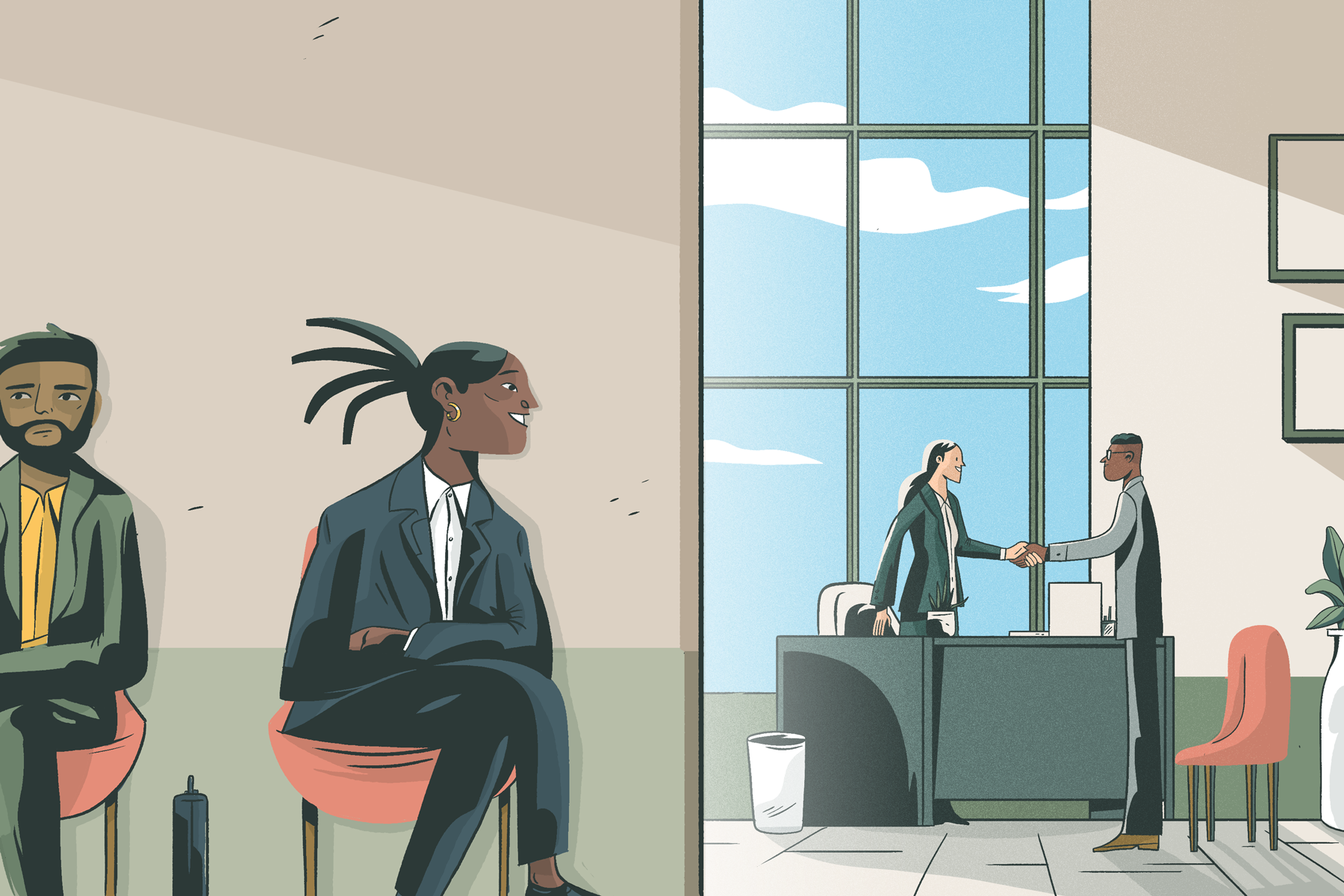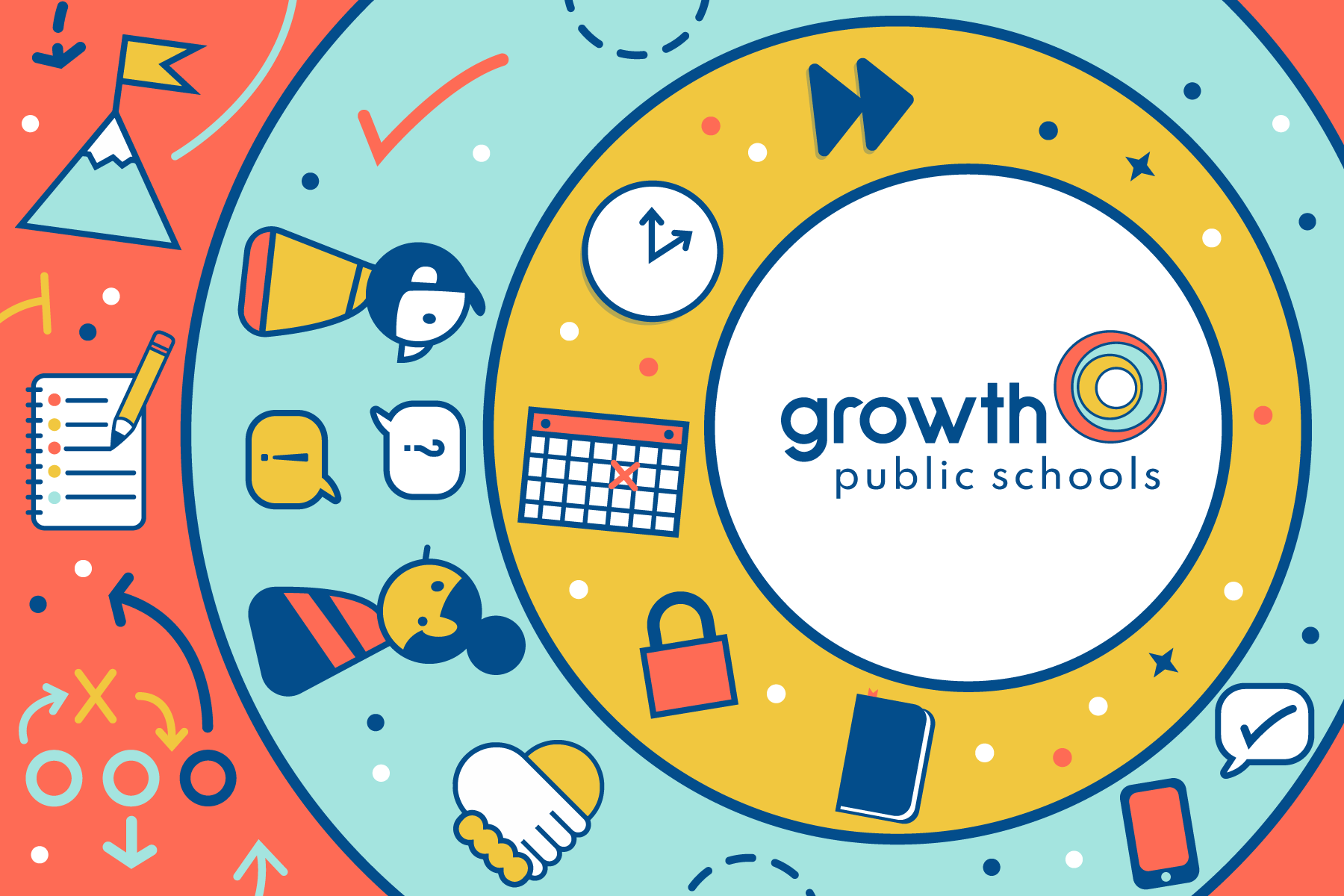
A Checklist Isn’t Big Enough: Making Space for DEI in Hiring
Tales from a new hire at Friday.
I’m a bi-racial woman and the child of an immigrant. I’ve been trained to be as White, male, and ‘Merican as possible if I want a shot at… well, taking a shot. I started working at Friday about a month ago, and all of that training is spectacularly useless. Since my first interview, I’ve been explicitly and implicitly encouraged to be myself. It’s like wearing clothes that fit after living in oversized hoodies. I feel seen, and it’s lovely.
The warm welcome is so embedded in Friday’s norms, it’s challenging to isolate the features that facilitate inclusion. I talked with Emily Davalos, Partner at Friday, to understand the details driving this culturally sensitive hiring process. The Friday team has collectively integrated diversity, equity, and inclusion (DEI) into every part of the business, and Emily has led its application in hiring and onboarding processes. Here’s the distilled version of what we discussed:
- You can’t please everyone, but you can listen to everyone.
- The ROI of DEI in hiring is incalculable. But definitely positive.
- Inclusive onboarding is just good manners.
- You already have the resources to create inclusive hiring protocols.
- DEI is in the details.
1. You can’t please everyone, but you can listen to everyone.
I’m used to exiting interviews with a vague sense of when I might hear back from the company. Friday told me exactly what to expect and when to expect it. When I spoke with Emily, it became clear that transparency is a company-wide intention Friday developed by listening to feedback from people, especially racial minorities, who they’ve hired in the past.
Specifically, Emily talked about conversations with former employees and vendors of color who expressed a need for more logistical support, including training and transparent expectations. Managers must invite and engage in these conversations with an attitude of humility and curiosity to nurture the diversity in their teams.
I appreciated Friday’s transparency because as a freelancer searching for a full-time position, I needed to negotiate schedules with clients while blocking time for interviews and writing assignments. Keeping transparent timeline commitments helps all people – especially Black and Latinx people who are more likely to experience multidimensional poverty – make informed life decisions while waiting to hear back from a company.
“As a White person leading this discipline in our company, I want to listen to what people of color have to say about their experiences because I don’t know what it’s like to be in their shoes,” Emily said.
When the feedback is positive, listening feels good. But listening can hurt, and those are the moments when empathy and curiosity are essential. Emily talked about situations when their approach didn’t have the desired effect, and the feedback they received was painful to hear.
“It helps when we’re able to look at our process and say, ‘Okay, we’re communicative about each step of the process and our decision making. We have a rubric for evaluating how to move a candidate forward.’ Having those processes in place helps me feel like I’m doing my part,” Emily said. “Our mindset for this work is that it’s going to be ongoing. Even though we’ve had some successes and great feedback, there’s still room for improvement.”
People of color, women, and LGBTQ individuals often get the message that we shouldn’t speak up because our input is inherently less valuable, we should just be grateful for any inclusion at all, and rocking the boat will get us thrown overboard. If businesses want to improve their DEI practices, they need to encourage their teams to provide regular feedback and create channels people with marginalized identities feel safe using.
2. The ROI of DEI in hiring is incalculable. But definitely positive.
The return on DEI in hiring is relevance. Survival. Longevity. Here’s what I mean:
- One in three Americans will identify as non-White by 2060.
- About 1.2 million LGBTQ adults (mostly under 29 years old) identify as non-binary.
- More than one-fifth of the world’s migrants live in the United States today.
Whether you love it or it scares you, America is becoming increasingly diverse. Friday doesn’t simply tolerate or accept this reality – the team values diversity as capital.
“It’s a very clear return on investment because of the type of work we do. As a company, we believe that having a diversity of experience and perspective is going to make our work together stronger,” Emily explained. “Our team is spread across cities, rural areas, and places that have different demographic makeups. Making sure that we help our clients feel understood and pushing one another to be more thoughtful is especially important in the sectors where we work.”
Actively recruiting talent from diverse communities gives companies invaluable insight and experience while making pragmatic swings at structural inequity and economic oppression. I don’t know how to quantify that ROI. But it’s positive.
3. Inclusive onboarding is just good manners.
My previous onboarding experiences have mostly felt like going to yearly check-ups. The medical staff care, but they don’t have time to show it. Onboarding with Friday was different, largely because of one, tiny behavior everyone on the team repeatedly practiced in my conversations with them.
They all paused.
After explaining a new process, they paused, asked if I had any questions, and paused again. I won’t lie – it was a little awkward to stare into their eyes through my computer screen (we’re a remote team). But I soon recognized an invitation in that stillness to authentically check in.
“It’s really important to us to make sure that new folks joining the team feel comfortable building relationships and like they can bring their whole selves as quickly as possible,” Emily said. “We want them to feel like this is a place where they belong and there’s excitement around them being here.”
Time was built into my onboarding schedule for intentionally casual conversations with my new colleagues, and I was invited to participate in a bi-weekly Thursday team lunch dedicated to exploring DEI.
“Everyone, including leaders of the company, talks about their unconscious biases,” Emily said about those Thursday sessions. “It’s a space for us to work through some things together and give each other resources. It’s been really meaningful.”
As a new hire, that first lunch made a powerful impression. The subject of the discussion was improving DEI in hiring and onboarding. I was already blown away by the process I was experiencing, but I listened to my new team brainstorm ways to be more inclusive in the future.
4. You already have the resources to create inclusive hiring protocols.
During these economically uncertain times, some companies – especially small ones – might worry about investing in DEI processes. Here’s the good news: if you have a team, you already have what you need to learn and grow.
Emily tapped into the wealth of information and experiences her colleagues and clients were willing to share. She asked questions like, “What can we glean from other organizations that have done this well?” and “Where can we find connections in our network to find insights and best practices?”
Friday’s 2020 Fellows solidified this effort, and through research, surveys, and network collaboration developed a DEI framework to guide best practices, including hiring, for small and medium-sized organizations. Friday also engaged partners like Edgility, a consultancy helping social impact organizations build equity into their structures and practices.
For example, one of the hiring best practices Friday has adopted emphasizes competency over experience. Colleges and universities are gatekeepers to economic wealth and professional experience, but too many of them are built on structurally inequitable systems. Competency-based hiring opens doors to candidates who have the skills but lack the pedigree.
I had seven years of experience as a freelance copywriter, but extremely limited agency experience. To Friday, my work samples and writing assignment outweighed that limitation. This approach corrects uneven scales. A person’s ability to do the work (not their resume) is their true engine for innovation.
5. DEI is in the details.
One of the most awkward moments I experienced in the workplace happened years ago in a breakroom. One of my colleagues told a joke that relied heavily on hurtful stereotypes about Black men. Everyone laughed but me. I was also the only person of color in the room.
When I worked in this establishment, I experienced many moments like this. Individually, they felt too small for me to raise flags. Cumulatively, they contributed to my eventual decision to leave. I didn’t feel safe communicating my distress because the details of my work environment didn’t communicate safety:
- We rarely discussed race as a team, and many of my colleagues adamantly professed not to see color.
- Jokes about marginalized communities were common.
- There was no DEI training.
When I talked to Emily about how she framed the right messaging for Friday’s hiring strategy, she highlighted the importance of designing materials that deliberately elevate DEI principles. She referenced Coming Clean, one of our clients, as an example.
“They’ve made an effort to make sure their hiring and recruiting practices are attracting diverse candidates and rooted in their organization’s values,” she said. “One of the things they’ve done is make sure that their commitment to diversity, equity, and inclusion is one of the first things they list in their job descriptions.”
Details like these gave Friday a competitive edge. The email signatures disclosing pronouns, transparent communication, internal surveys on DEI practices, ongoing conversations about DEI issues, and cultural norms that embrace every individual’s humanity, health, and perspective, reinforce that “Friday” (or freedom) feeling.
I want to work in a place where my creativity and energy – assets shaped by my lived experiences – fit. Because of its commitment to DEI beginning with recruiting and hiring, Friday’s work environment is roomy. It feels safe. It acknowledges room for improvement. It makes space for DEI in a way a checklist can’t. My colleagues and I can wear oversized hoodies if we want to, but we can also let ourselves be seen.







